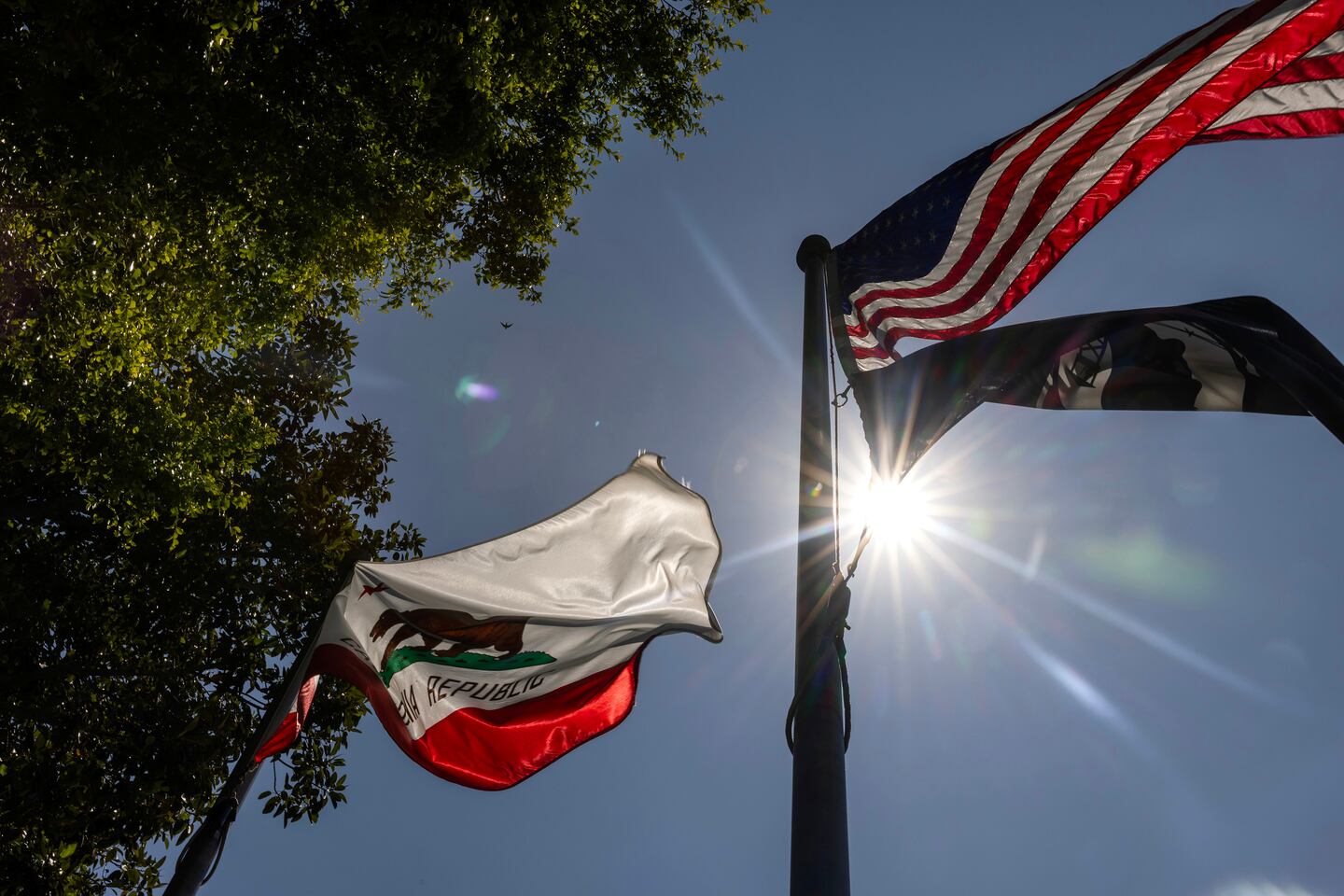Copyright The Boston Globe

Given all his community had gone through, he was worried about mail tampering — and he was angry. “Especially here in California,” he said, “we need to speak up.” Elections on Tuesday in California, New Jersey, and other states are unfolding as the Trump administration’s immigration raids have spread fear in Latino communities across the country. That fear of Immigration and Customs Enforcement activity has become an X factor in this week’s elections. Democratic officials and Latino voting rights activists worry that the ICE crackdown will dampen Latino turnout and that the presence of Justice Department election monitors at polling sites in California and New Jersey will intimidate voters. Voter data of the turnout so far in California, New Jersey, and Virginia shows that Latino participation is roughly on pace with past elections. And for some Latino voters, the Trump administration’s escalation of force appears to be not a deterrent to casting a ballot but a motivation. In Virginia, where the Republican nominee for governor, Lieutenant Governor Winsome Earle-Sears, is running against Abigail Spanberger, a Democratic former member of Congress, one Hispanic business owner said the most important issue in the election was the ICE raids. “It is something we are feeling morning and night, and it stirs a lot of sadness,” said the business owner, Carlos Castro, a naturalized US citizen from El Salvador and an independent voter who runs Todos Supermarket in Woodbridge, Va. He cast his ballot during the early-vote period. Elvis Cordova, 49, a government relations consultant in Alexandria, Va., who plans to cast an early vote for Spanberger, said the federal crackdown had raised the election’s stakes. “A lot of Latin American folks have come here because they have seen their countries go authoritarian — their rights were slowly eroded,” Cordova said. Now, he added, many are “seeing shades of that happening here.” In New Jersey, the mayor of the city of Passaic, Hector Lora, said he doubted that the Trump administration’s decision to dispatch federal election monitors to Passaic County would scare off Latino voters. The county is considered crucial in the neck-and-neck governor’s race between Jack Ciattarelli, a Republican, and Mikie Sherrill, a Democratic member of Congress. “We’re Jersey,” Lora said. “We will make it to the polls. We will cast our votes. And we will have our voice.” Mayor André Sayegh of Paterson, N.J., said he saw no fear or reluctance to vote among residents in his city, Passaic County’s biggest, which is more than 60 percent Latino. If anything, he said, he saw determination. “I feel like this is the way that people feel about their ballot -- like they could fight back,” Sayegh said. ICE officials said in a statement that the agency was not planning immigration enforcement actions targeting polling locations and that its operations are “intelligence-driven.” The statement said, however, that “if a dangerous criminal alien is near a polling location, they may be arrested as a result of that targeted enforcement action.” Last month, the Justice Department announced that it would monitor elections in six counties with large Latino populations in California and New Jersey, at the request of Republican Party officials in those states. In New Jersey, Republicans had complained that Democratic members of the Board of Elections in Passaic County had blocked the use of security cameras in ballot storage areas and refused to require a sign-in log for workers with access to mail-in ballots. California Republican officials cited “reports of irregularities” and general concerns that local officials were failing to catch flawed and duplicate ballots or cull ineligible names from voter lists. The Justice Department said personnel from its Civil Rights Division would be stationed at polling places and offices of registrars of voters “to ensure transparency, ballot security and compliance with federal law.” The California attorney general, Rob Bonta, said that the federal government had no legal basis to interfere in a state election, that the Republican complaints were baseless and that California would deploy its own observers, to monitor the monitors. Latino Republicans dismissed any concerns raised by Democrats that the ICE raids or Justice Department election monitoring might hurt Hispanic turnout. Rudy Melendez, 57, a lighting technician in the North Hollywood section of Los Angeles and a conservative, scoffed at the notion that a US citizen would hesitate to vote because of a crackdown on immigrants in the country without legal permission. If turnout ends up being low, he said, it could be because voters tend to be less tuned in to off-year special elections. “People are going to vote if they want to vote,” he said. Latino voters have become pivotal in this century in American elections. They are among the fastest-growing demographics in the United States, disproportionately young and less entrenched with political parties. In 2024, Latino swing voters moved by economic dissatisfaction were instrumental in President Trump’s return to office. That support has been tested as the president has sought to arrest and deport immigrants lacking permanent legal status on a large scale, separating mixed-status families and sweeping up Latinos who are US citizens in some cases. In California, voting experts said Latino voters typically made up about a quarter of the turnout in statewide elections. As of early Sunday, about 18 percent of the vote, including in-person early voting and mail-in ballots counted so far, had been cast by Latinos, according to Political Data Inc., a data firm based in California. That level of participation is normal for a demographic that tends to vote in person and close to Election Day, voting experts said. Governor Gavin Newsom persuaded the Democrats who control the state Legislature to approve a ballot measure that would let state lawmakers redraw California’s congressional districts. Ordinarily, the state’s political maps are determined by a nonpartisan commission. The proposed shift was a response to Trump’s push to get Republicans in Texas and other states to use redistricting to help his party keep control of the House of Representatives. The California measure, called Proposition 50, requires voter approval and is widely expected to pass. The proposed new map could net as many as five congressional seats for Democrats.



